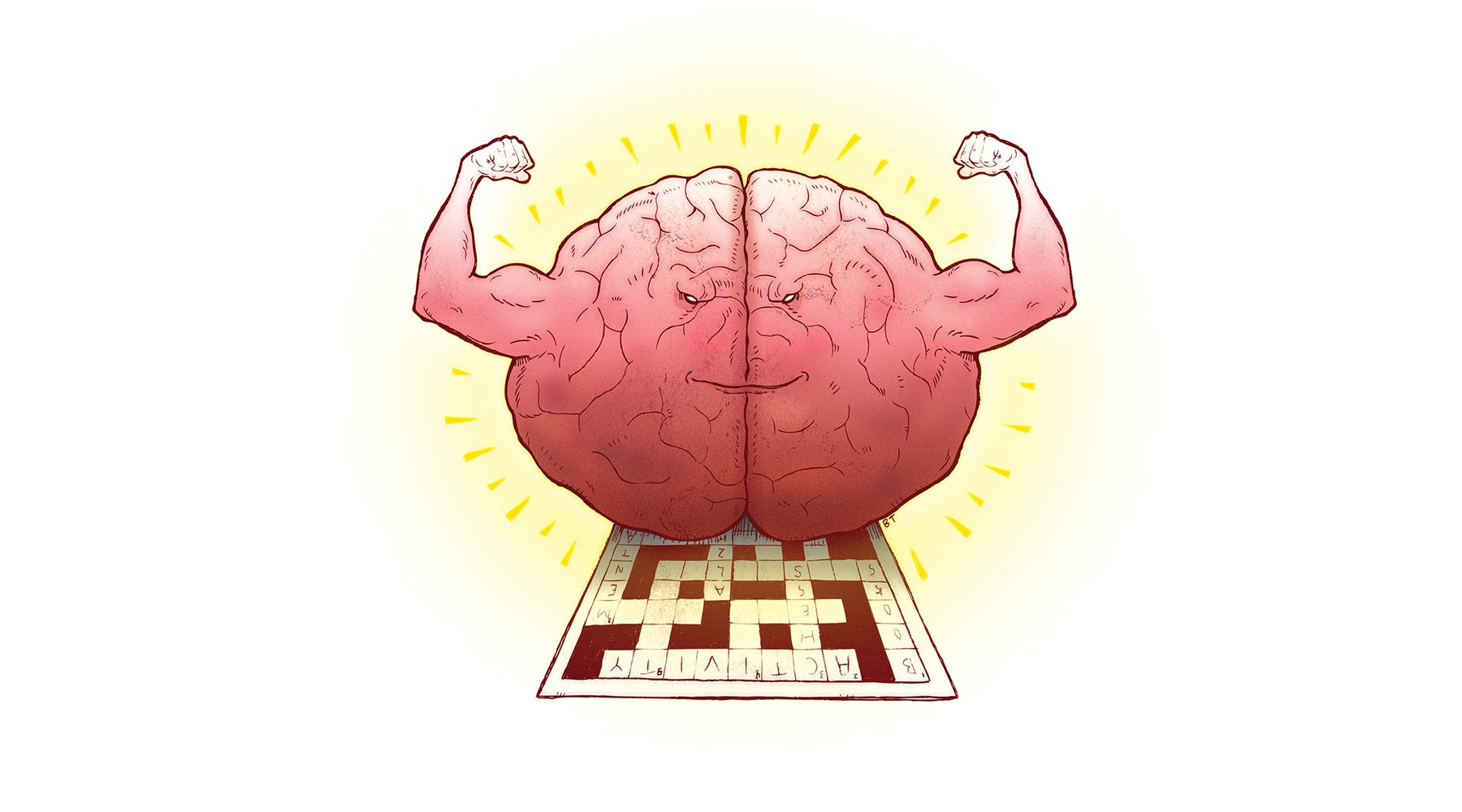We’ve all heard about the crossword puzzles. You know, the ones that could keep you from developing Alzheimer’s disease.
A 20-year survey of 469 elderly people living in the Bronx, NY, showed that those who kept mentally active through pursuits such as reading, playing board games and doing crossword puzzles had a lower incidence of Alzheimer’s or other forms of dementia than their counterparts who didn’t engage in these activities. And the more you did, the better your chances of avoiding Alzheimer’s. For example, those who did crossword puzzles four days a week had a 47 percent lower risk of dementia than those who did but a single puzzle a week.
It sounds like a pretty compelling argument for the curative powers of word games. Until you dig a little deeper. “It’s a classic causation versus correlation problem,” says OMRF President Stephen Prescott. “Are these mental activities keeping Alzheimer’s at bay? Or is this just a case of folks who’ve been dealt a good genetic hand?”
Unfortunately, the jury is still out on this–and on the larger question of whether there’s anything at all you can do to stave off Alzheimer’s disease. In 2010, a National Institutes of Health panel of experts concluded that “no evidence of even moderate scientific quality exists to support the association of any modifiable factor . . . with reduced risk of Alzheimer’s disease.”
In a world where we have 34 million cases of Alzheimer’s and no effective treatments, prevention would seem to be the name of the game. Indeed, there have been studies establishing a link between the disease and a laundry list of modifiable behaviors and conditions: physical inactivity, smoking, depression, low education, hypertension, obesity and diabetes. At the 2011 Alzheimer’s Association International Conference, researchers used a mathematical model to estimate that these behaviors and conditions could be responsible for about half of the world’s Alzheimer’s cases.
The key word here is “could.”
“There’s evidence that all of these are risk factors, but the extensive studies necessary to establish that they cause Alzheimer’s have not been done,” says Dr. Jordan Tang, who has researched Alzheimer’s disease at OMRF for more than a decade. Still, he says, it makes good sense to do all that you can to minimize your risk for Alzheimer’s.
“Research already shows that being physically active, not smoking and controlling your weight and blood pressure can reduce your risk of heart disease and other illnesses,” he say. “So why not do all of these things now?” One day soon we may find out that those same healthy habits also protect us from Alzheimer’s.



